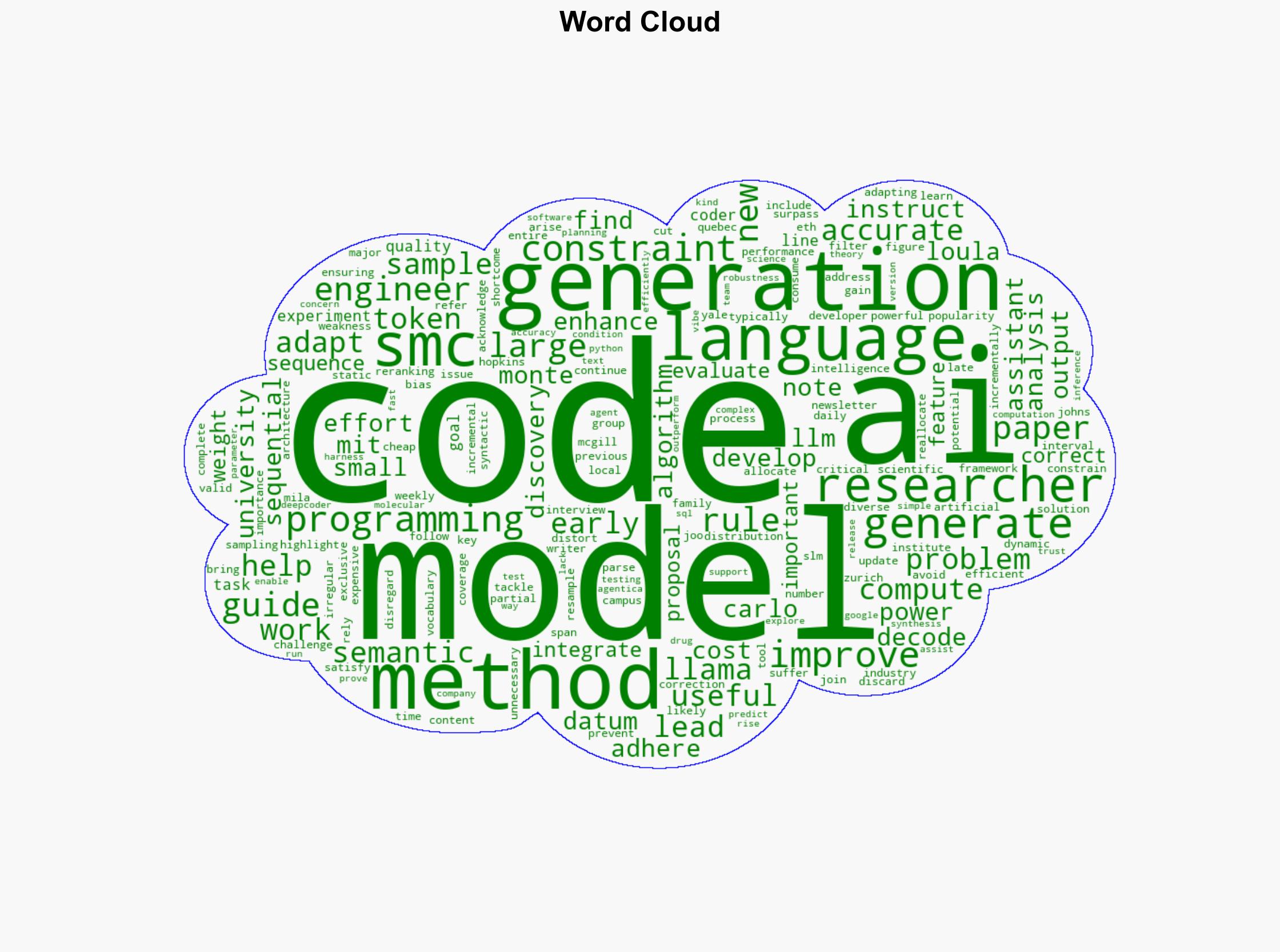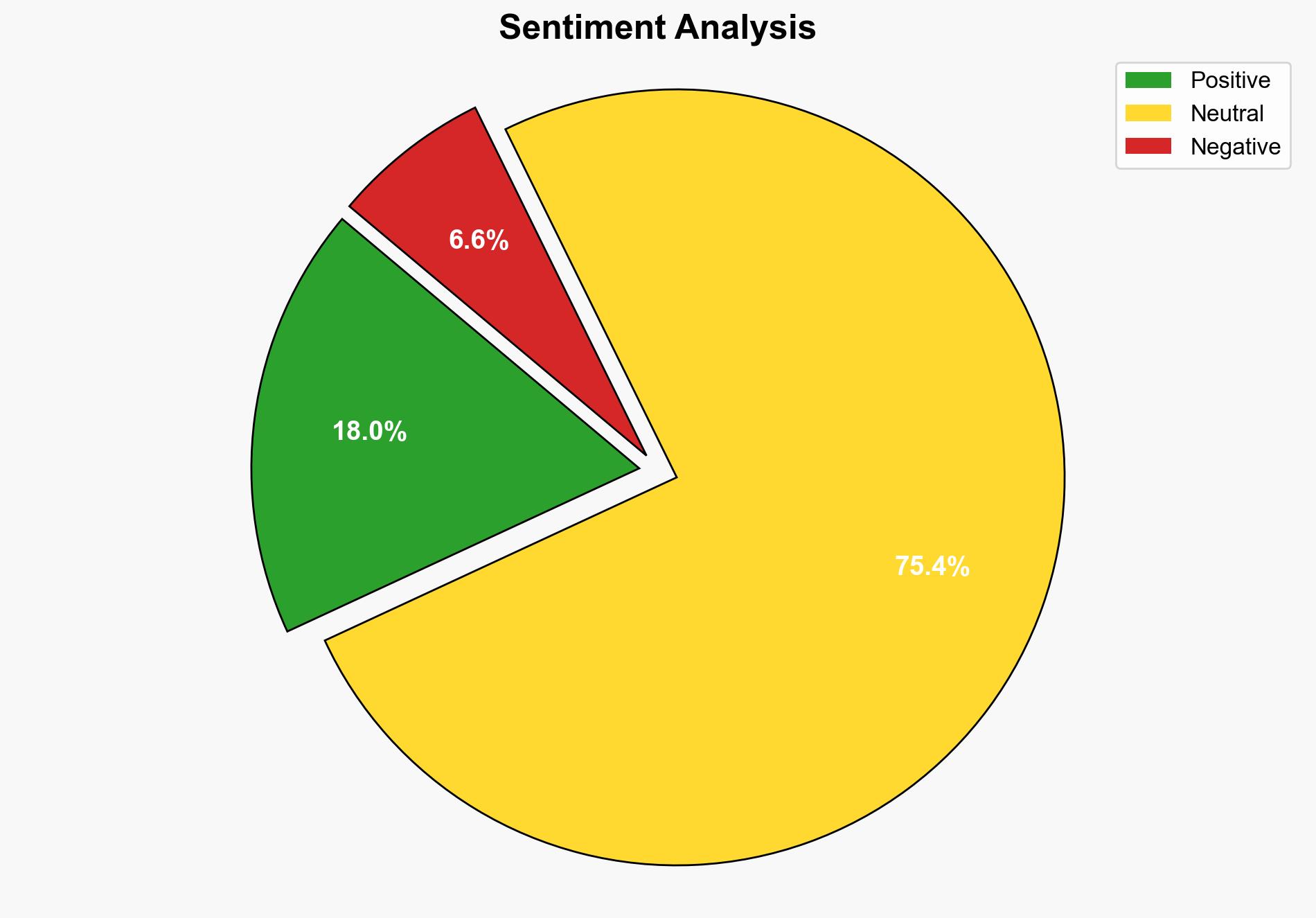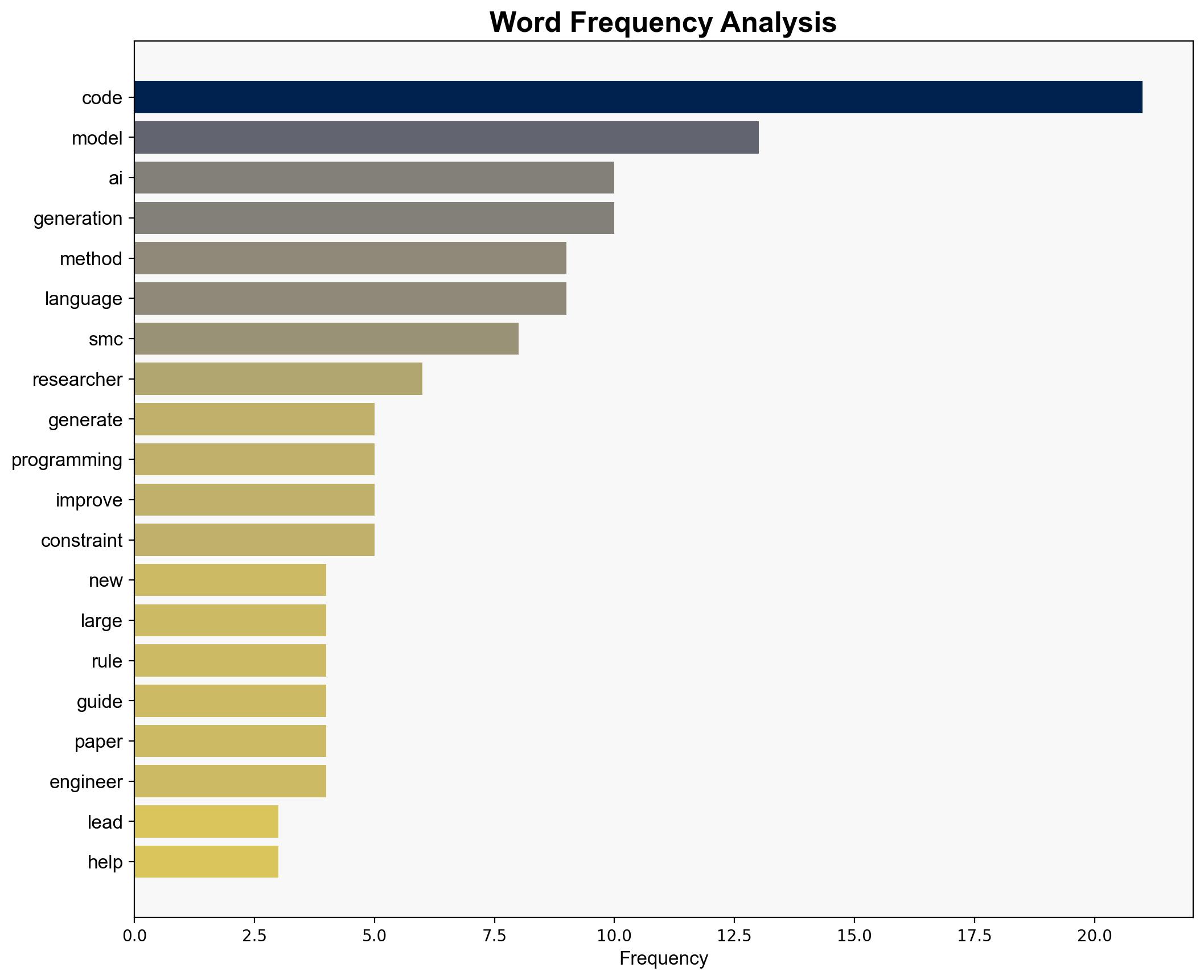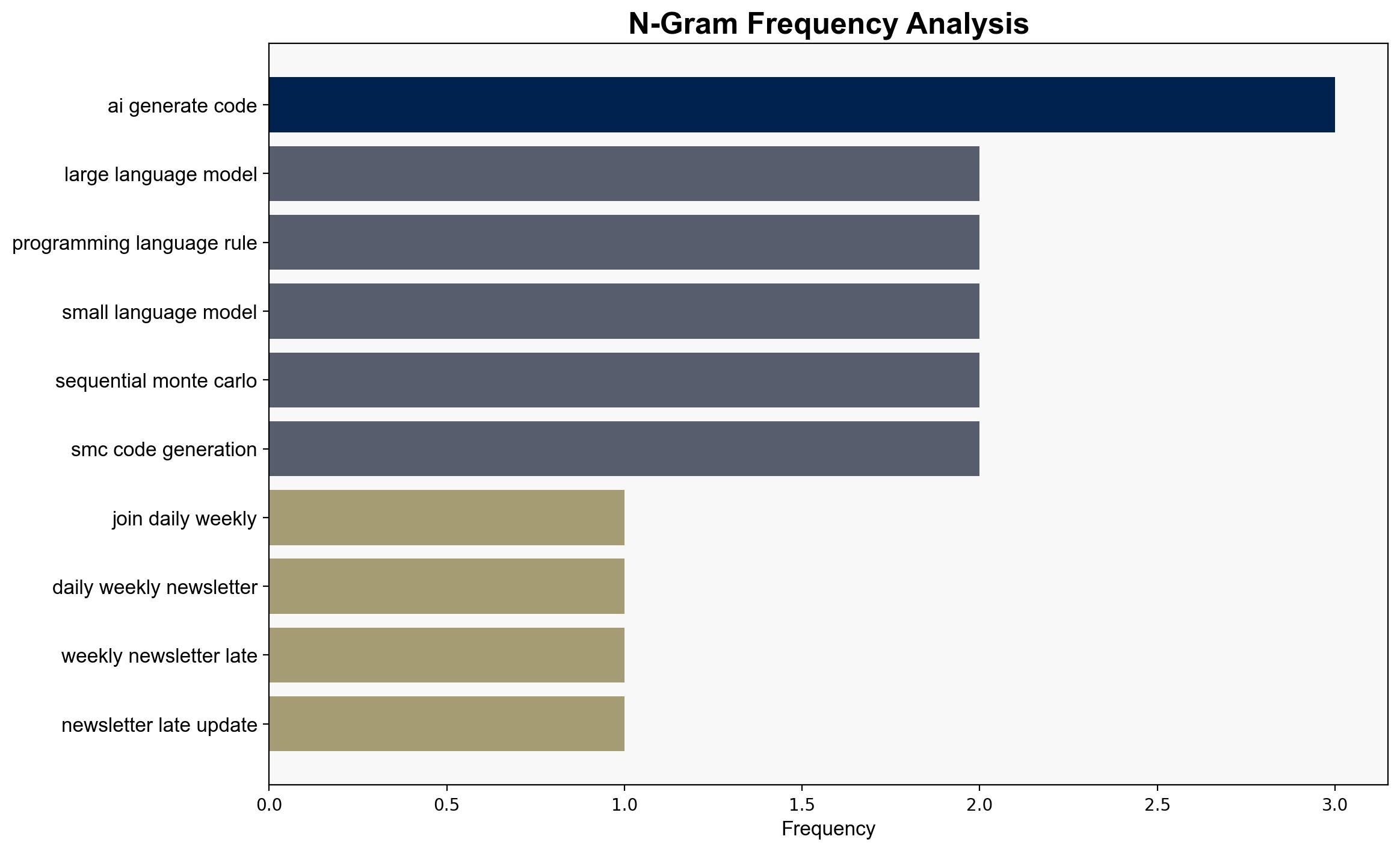More accurate coding Researchers adapt Sequential Monte Carlo for AI-generated code – VentureBeat
Published on: 2025-04-23
Intelligence Report: More Accurate Coding – Researchers Adapt Sequential Monte Carlo for AI-generated Code
1. BLUF (Bottom Line Up Front)
Researchers from MIT, McGill University, ETH Zurich, Johns Hopkins University, Yale, and Mila have developed a method using Sequential Monte Carlo (SMC) to enhance the accuracy and utility of AI-generated code. This approach is designed to improve the adherence of AI models to programming language rules, particularly benefiting small language models (SLMs) in code generation tasks. The method aims to reduce computational costs and improve the efficiency of AI coding assistants.
2. Detailed Analysis
The following structured analytic techniques have been applied to ensure methodological consistency:
Analysis of Competing Hypotheses (ACH)
The SMC method is evaluated against traditional large language model (LLM) approaches. Evidence suggests SMC offers superior performance in maintaining code accuracy and reducing computational overhead.
SWOT Analysis
Strengths: Enhanced accuracy and efficiency in code generation; reduced computational costs.
Weaknesses: Potential complexity in implementation and integration.
Opportunities: Broader adoption in AI-driven software engineering; potential to set new industry standards.
Threats: Rapid advancements in competing AI technologies; potential resistance from traditional LLM proponents.
Indicators Development
Monitor AI-generated code quality improvements, adoption rates of SMC methods, and shifts in computational resource allocation.
3. Implications and Strategic Risks
The adoption of SMC in AI code generation could significantly impact software development practices, potentially leading to a shift in industry standards. However, reliance on AI-generated code without adequate oversight may introduce vulnerabilities if semantic rules are not strictly adhered to.
4. Recommendations and Outlook
- Encourage further research and development to refine SMC methods and address potential integration challenges.
- Promote industry collaboration to establish best practices for AI-generated code quality assurance.
- Scenario-based projections:
- Best Case: Widespread adoption of SMC leads to significant improvements in software development efficiency and quality.
- Worst Case: Integration challenges and resistance from traditionalists hinder adoption, limiting impact.
- Most Likely: Gradual adoption with incremental improvements in AI code generation practices.
5. Key Individuals and Entities
Joao Loula (Lead researcher and paper author)
6. Thematic Tags
(‘AI advancements’, ‘code generation’, ‘software engineering’, ‘computational efficiency’)





